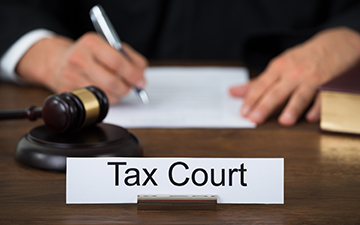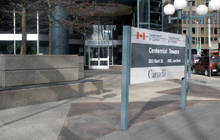The Tax Court Of Canada's new fast track settlement conference system, post the COVID-19 pandemic

Tax lawyer and accountant David Rotfleisch looks at the ramifications of trying to clear the Tax Court's backlog of cases
 |
There are clear issues associated with the new system, explains David J. Rotfleisch, CA, CPA, JD, of Rotfleisch & Samulovitch P.C. |
Introduction: The Fast Track Settlement Conference System Procedure & Rules
On June 4, 2020, during a virtual meeting with the Tax Court of Canada Bench and Bar Liaison Committee, the Tax Court of Canada introduced its new, yet temporary, "fast track settlement conference system." This new system aims to reduce the backlog of appeals that have accumulated since March 16, 2020, due to the ongoing COIVD-19 pandemic and resulting shutdown of the Tax Court of Canada. The key features of the new system are:
- it will serve as a temporary system concerning general procedure appeals only;
- it will be available only if both parties (e.g., the Canadian tax lawyer representing the taxpayer and the Canadian tax lawyer representing the Canada Revenue Agency) agree to proceed by way of the fast track settlement conference system;
- parties who are interested in proceeding by way of the fast track settlement conference system will file a joint conference request brief in which they will include their pleadings, and in which they will address key issues, their respective position, the basis for their position and the dollar amount of tax at issue;
- a Tax Court of Canada judge will determine whether (or not) the tax appeal is suitable to proceed by way of the fast track settlement conference system;
- where the tax appeal is considered suitable to proceed by way of the fast track settlement conference system, a Tax Court of Canada judge will contact the parties, present them with the date for the conference, indicate who is required to attend the conference and make any requests deemed necessary for the conference to proceed efficiently;
- the Tax Court of Canada judge will also determine whether the conference will be held virtually or in person in Vancouver, Toronto, or Montreal;
- the fast track settlement conferences will take place in October and November 2020; and
- if the matter fails to settle by way of the fast track settlement conference system, the judge who presides conference will not preside over the tax trial of same matter.
The Tax Court of Canada stated that it will release further information regarding the tax fast track settlement conference system in the end of June and that it will begin accepting requests under this new system as of late July. The Tax Court of Canada will also provide subsequent information concerning its plan to resume operations to parties requesting to resolve their tax disputes under the new tax fast track settlement conference system.
The Benefits & Concerns Associated with the Fast Track Settlement Procedure
The new system reflects the Tax Court of Canada's effort in reducing the number of appeals that were postponed due to the ongoing COVID-19 pandemic and managing the large volume of submissions filed online during its closure as a result of this pandemic. It presents taxpayers and the Canada Revenue Agency with an opportunity to expedite the process for resolving tax disputes — perhaps saving time and thousands of dollars in legal fees.
However, it is not clear how efficient this new system will be, considering the CRA has its own backlog of work that it will have to address. On the one hand, it is likely that the lawyer representing the CRA, along with the lawyer representing the taxpayers, will be interested in resolving tax disputes by way of the new system without the need to schedule a hearing. On the other hand, it will be interesting to see how the CRA will leverage its use of the new system while addressing its own backlog. With just over one week left in the month of June, many legal practitioners and taxpayers are anticipating the Tax Court's release of subsequent information pertaining to the new "fast track settlement conference system."
There are, however, clear issues associated with the new system. Both parties may not agree to proceed by way of the system, in which case they will be forced to schedule a tax court trial. In addition, if a Tax Court judge determines that the settlement conference must be held in person, the conference locations are limited to Vancouver, Toronto or Montreal. In this context, that taxpayer may not have the financial means to fund travel expenses and accommodations to the conference. As such, this new system could create financial burdens for taxpayers.
Further, the system is only a temporary solution to the court's backlog issue and conferences are only set to take place in October and November 2020. These two months may not be sufficient to address the court's backlog issue, which is the basis on which this new system is built, and to allow all appeals equal opportunity to proceed by way of the system. As such, interested parties may be turned away from the program if they are unable to attend the conference during October and November, or the Tax Court may be forced to reject parties from participating if there is a backlog in the new system itself.
David J. Rotfleisch, CA, CPA, JD is the founding tax lawyer of Rotfleisch & Samulovitch P.C., a Toronto-based boutique tax law firm and is a Certified Specialist in Taxation Law. He appears regularly in print, radio and TV and blogs extensively. With over 30 years of experience as both a lawyer and chartered professional accountant, he has helped start-up businesses, resident and non-resident business owners and corporations with their tax planning, with will and estate planning, voluntary disclosures and tax dispute resolution including tax litigation. Visit www.Taxpage.com and email David at david@taxpage.com.









(0) Comments